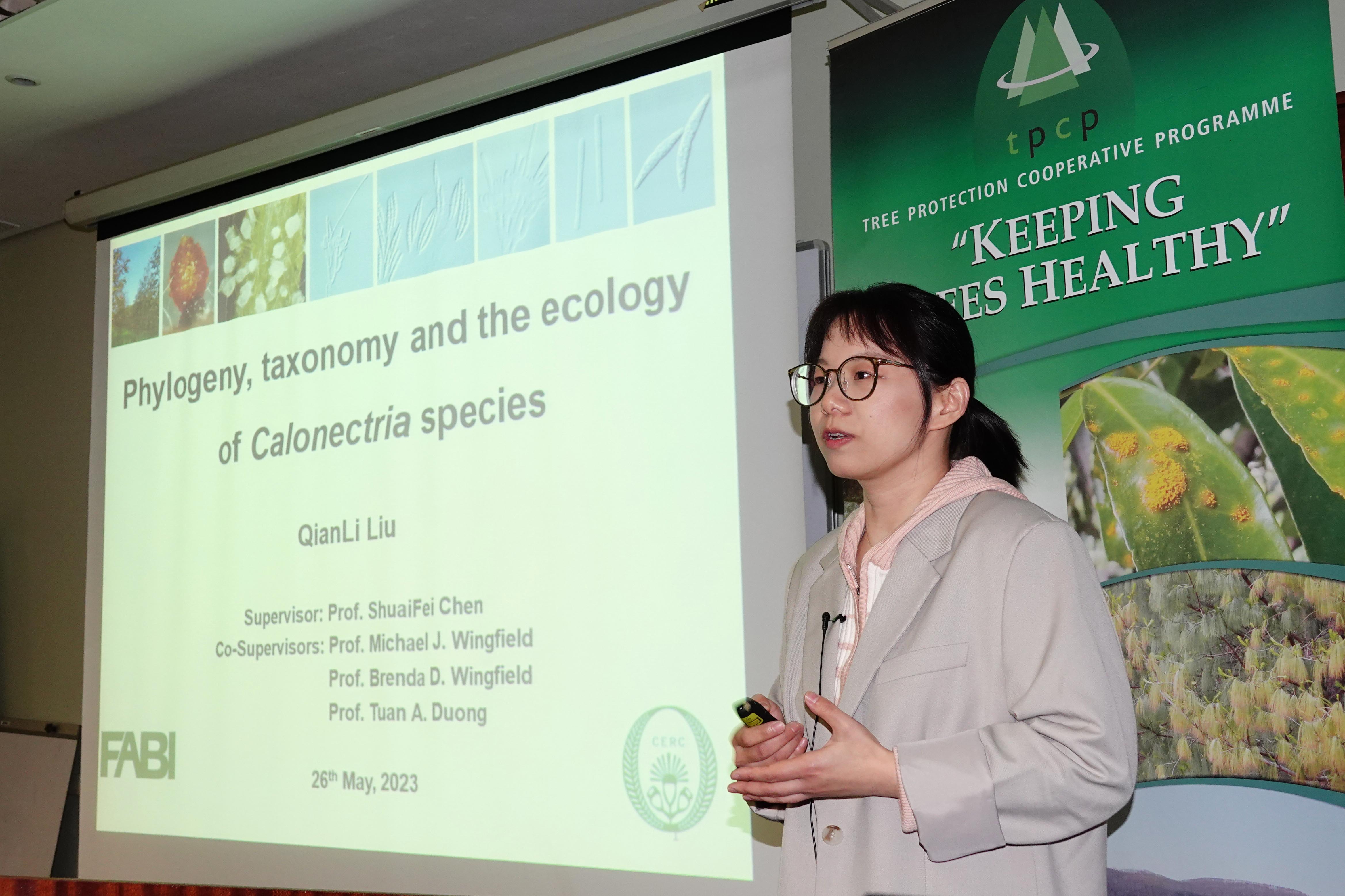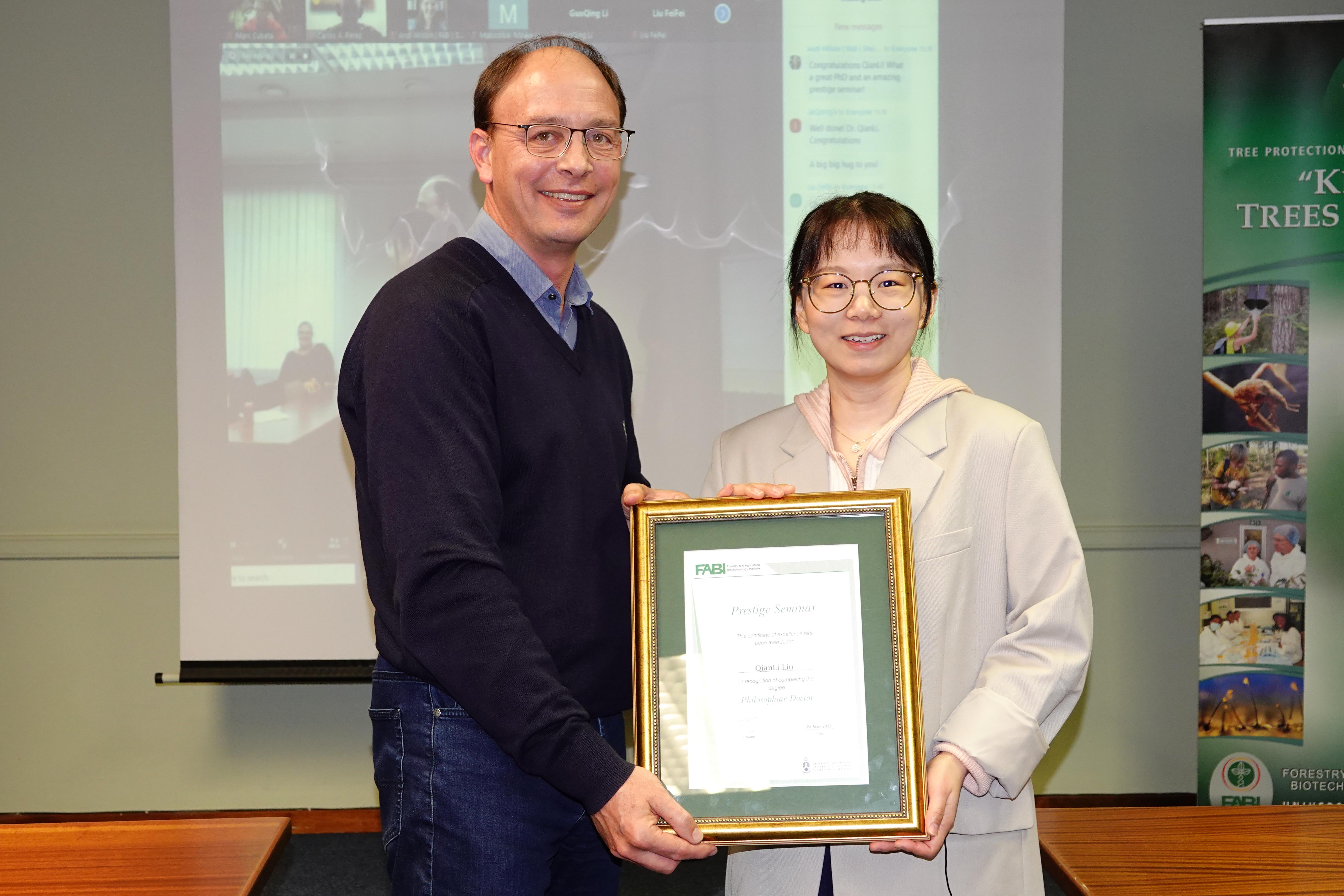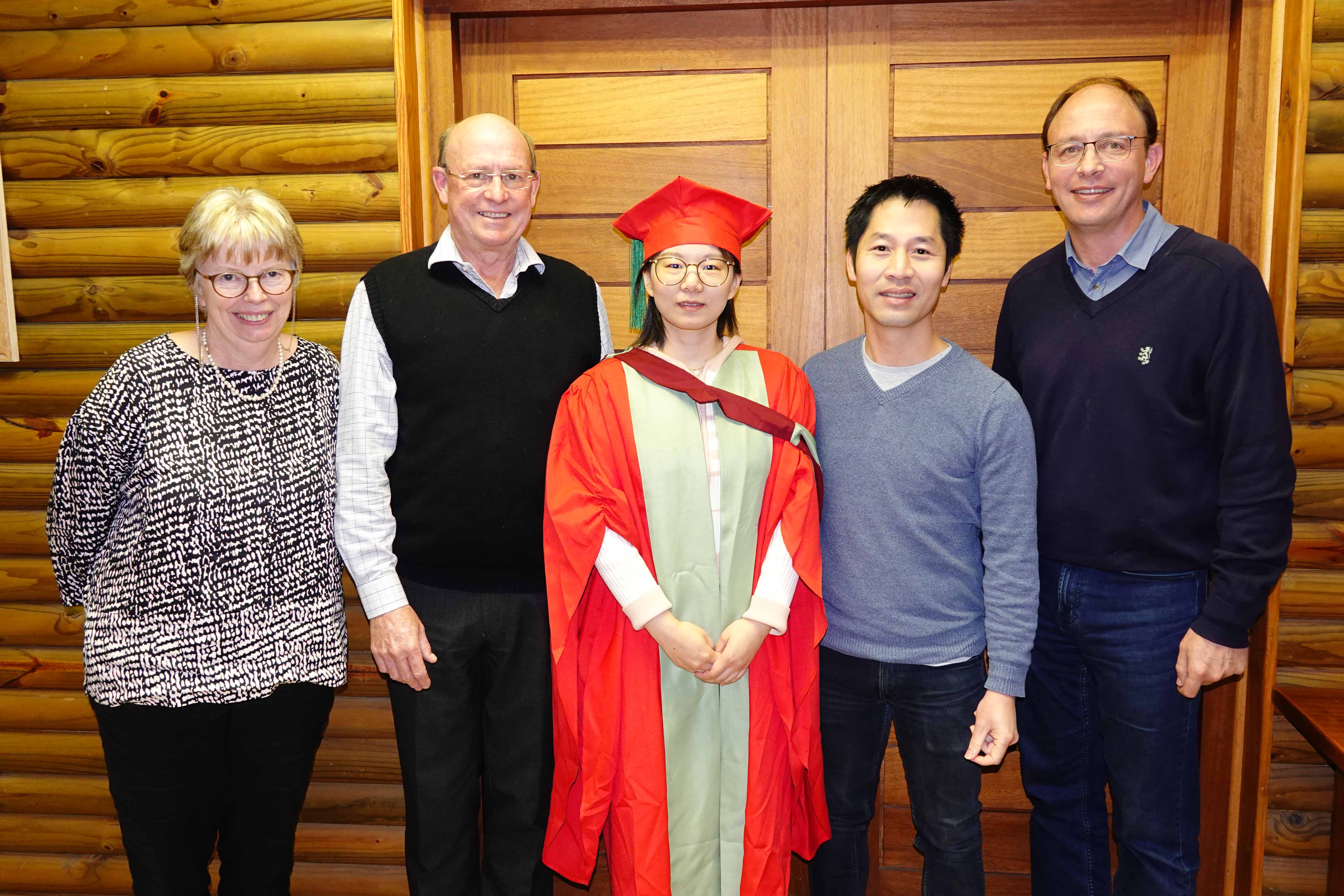Congratulations QianLi! 2023-06-06
FABI PhD candidate QianLi Liu presented her Prestige Seminar “Phylogeny, taxonomy and ecology of Calonectria species” on 26 May before defending her thesis in a meeting with her examiners. Prof. Mike Wingfield congratulated QianLi on a well written and very clear thesis, a sentiment echoed by her examiners. He made the point that she took ownership of her project and did excellent work to complete her PhD, despite the challenge of being based in China, and thus prevented from travelling to South Africa due to the COVID-19 pandemic. QianLi’s supervisors were Prof. Shuaifei Chen from the Research Institute of Fast-growing Trees (RIFT) and RIFT-FABI Tree Protection Programme, Prof. Mike Wingfield, Prof. Brenda Wingfield and Dr Tuan Duong.
Calonectria is a genus of fungi with a global distribution, with species having a wide range of hosts but many also cause serious diseases of important crop plants including plantation eucalypts. QianLi’s study re-evaluated and clarified the phylogenetic relationships of all the published Calonectria species, and also proposes a set of credible and stable criteria for species identification. The overall result was an of 120 Calonectria species reduced from an original 169 species. She also explored the diversity and distribution of Calonectria species in China’s FuJian Province soils. A high number of Calonectria isolates were retrieved from the soil samples collected from Eucalyptus plantations, natural forests and other related hosts. Several Calonectria isolates were also obtained from the diseased Eucalyptus leaves and soil samples in YunNan Province, southwestern China. Overall, the results revealed some species are predominantly soil inhabitants while others appear to be specifically suited to infecting host foliar tissues. This study further revealed that Calonectria species will pose long-term challenges to the development of Eucalyptus forestry in southern China.




